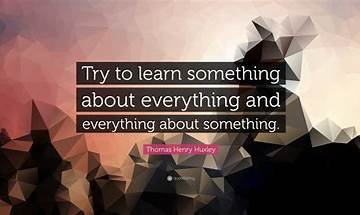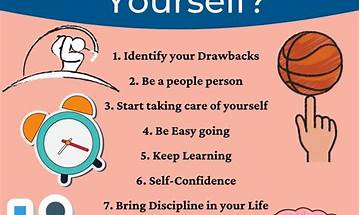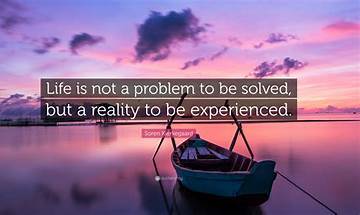"Eat, drink, and be merry" vs "delayed gratification", which choice will make people happier?

Via:freepik
Author |Emily Reynolds
Translation |Caroline
Review | cool brain
Read aloud | pigeon
Artist |Jenny
Edit |YJ
Thinking flexibly about what happiness is and changing our behavior in different situations will bring more significant improvement to our sense of happiness.
Many decisions in our lives are closely related to happiness. When we see a chocolate cake, many people will go directly to take a bite, and many people will pick up a fork and eat it bite by bite. However, some people may show more self-restraint.
The reason that often determines what kind of decision we will make is related to our views on "delayed gratification" and "short-term enjoyment". Those who like to seize the small happiness of the moment may be more inclined to enjoy snacks that satisfy short-term appetite, while those who prefer to delay satisfaction may find it easier to say "no".
Recently, scholars from the United States and Australia have analyzed our decision to pursue happiness. The results show that our understanding of happiness will affect our behavior. Writing in Emotion magazine, the research team pointed out that thinking flexibly about what happiness is and changing our behavior in different situations will bring more significant improvement to our sense of happiness.
In the first study, 298 students were asked to think about an important goal that they had to make sacrifices to achieve. Then, they were asked how much they agreed with such statements as "It is worthwhile to sacrifice now for future happiness" or "I believe that working hard now is for future happiness, even if it means missing the happy time of the present". In order to evaluate their feelings about "living in the present", the investigators also investigated their degree of recognition of such statements as "I want to seize the present and enjoy life as much as possible".
While analyzing these answers, the researchers also analyzed how much time and energy participants spent on achieving their previously written key goals, how often they would take part in interesting or enjoyable activities, how happy they expected to be when they achieved their goals, and how regretful they would be when they ignored their goals in order to participate in interesting activities. In addition, participants also filled out tests on tenacity (measuring perseverance and enthusiasm for long-term goals), self-control, mindfulness, delayed gratification and other personality traits.
The results show that those who agree with delayed gratification spend more time pursuing their goals, while they feel more anxious and regretful when they participate in non-target activities. As expected, those who believe in "living in the present" participate in more interesting activities and experience more happiness in terms of ability, meaning, purpose, interpersonal relationship and optimism. A follow-up study repeated these findings in an older sample, and further showed that delaying happiness may bring greater happiness and satisfaction, because the goals people pursue help them gain a deeper sense of meaning and purpose in life.
In order to expand these findings, the team's next study explores whether the belief in happiness is malleable: can we change our view of happiness and what is the result of doing so? In this study, participants need to read a fake The New York Times article. The content of this article is related to the concept of happiness, which is either described as an investment that grows with time or as something that comes and goes in a hurry. Subsequently, participants need to report whether they prefer to delay gratification or live in the present.
Influenced by these articles, when people read the report that happiness is an investment, they are more likely to agree with the theory of delayed gratification, which further indicates that they are more likely to pursue their long-term goals. This shows that the belief in happiness is indeed plastic: we can change our understanding of happiness, and then change our behavior.
The last study required participants to complete a daily diary. For 12 consecutive days, they will write down a goal every day, as well as how long it took to achieve this goal that day, their satisfaction with life and any positive or negative feelings. The results show once again that different happiness beliefs will affect our pursuit of goals, emotional response and happiness; Those who live in the present are more inclined to engage in short-lived, non-goal-oriented activities, while those who believe in delayed satisfaction focus on pursuing goals.
If you are now wondering whether to eat, drink, and be satisfied in time or delay, then this study brings you good news: in all studies, whether participants follow the belief of delaying satisfaction or living in the present, these two beliefs can bring happiness and happiness. Researchers believe that instead of saying that one happiness belief is superior to another, it is better to adopt flexible methods so that we can enjoy short-term happiness and strive to achieve greater goals, and realize the benefits of both, and finally make us happier.
In this study, delaying gratification and living in the present are regarded as opposing beliefs. The researchers pointed out that they may actually be complementary, which may limit the validity of these research results. Future research can also explore how different happiness beliefs will affect our feelings and experiences in real life-for example, how happy we will be when we reach a long-term goal and sacrifice short-term happiness for it?
As Lora Park, the principal researcher of this study, wrote, "Happiness is usually regarded as something that belongs to the present or the future. But our research shows that living in the present and delaying satisfaction have costs and benefits, and these beliefs are also plastic. As long as we are aware of these different beliefs about happiness and can use them flexibly, we can maximize our happiness and happiness in our daily life. "
Via:giphy
1.Park, L. E., Fujita, K., Naragon-Gainey, K., Radsvick, T. M., Jung, H. Y., Xia, J., Ward, D. E., Paravati, E., Weng, J., Italiano, A., & Valvo, A. (2023). Happiness—To enjoy now or later? Consequences of delaying happiness and living in the moment beliefs. Emotion, 23(1), 138–162. https://doi.org/10.1037/emo0000850
Declaration: All article resources on this website, unless otherwise specified or labeled, are collected from online resources. If the content on this website infringes on the legitimate rights and interests of the original author, you can contact this website to delete it.






